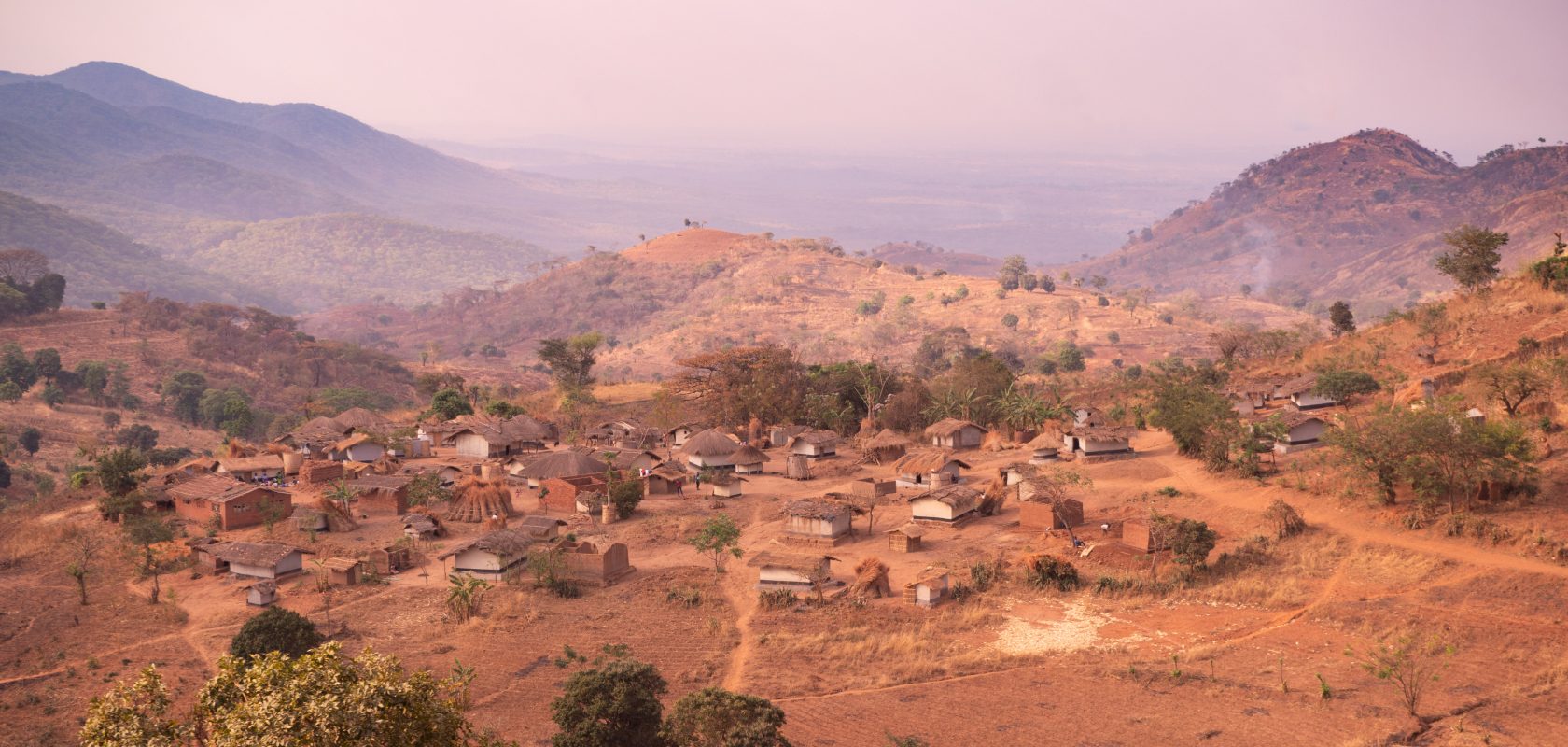As you are reading this, one more family’s life is brighter. Our team in Malawi is busy right now installing solar home systems in 500 houses, a whole village in Malawi, under our project ‘Light a Village’.
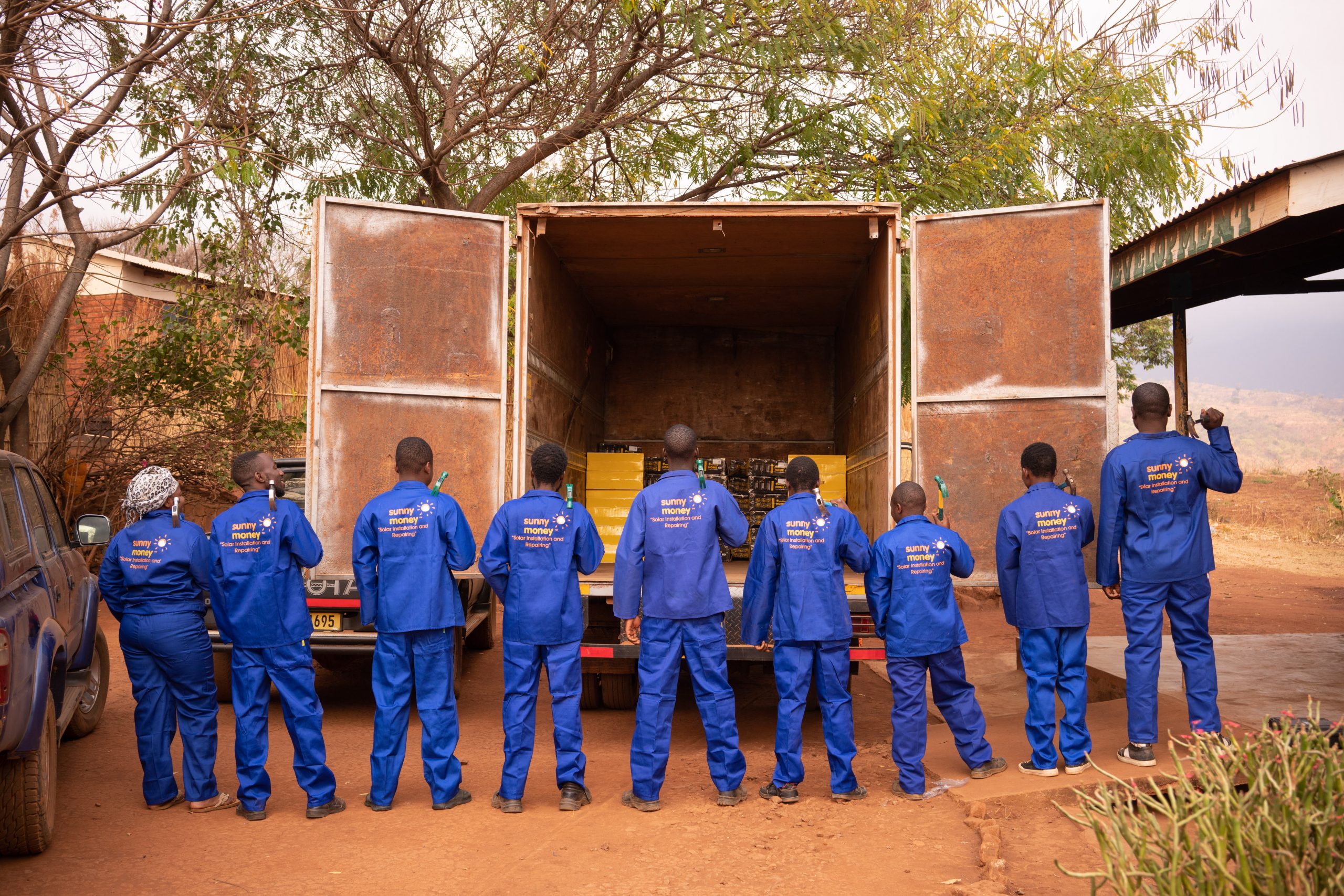
SunnyMoney technicians starting a long day of solar installations. 500 homes are getting solar home systems in their houses. Photo: SolarAid/Chris Gagnon
Since the announcement of the project, our team has been preparing for this day. Research has gone into understanding the socio-economic situation in the area, stock has been imported and Customer Service Representatives have been recruited.
Ntchisi is a rural village located off grid, in central Malawi. The majority of people living in the village make their income from farming and the average income in the village is about £50/month. The people in the village mainly spend their income on food and farm inputs, leaving little for energy consumption. Therefore, in rural villages like Ntchisi, when the sun sets, it gets pitch black quickly.
The families in the village have told us their top priorities for lighting are for cooking, security and homework, but without access to electricity, many households are forced to choose poor, or dangerous lighting sources as the sun sets.
Our research tells us that even though 67% use battery torches for lighting at night, 26% of households are left to rely on open flames such as kerosene lamps, candles, and grass-fire in their homes for lighting. For the days when there is no money to buy batteries, open flames are also the secondary option for many families to get light. The average household in Ntchisi uses 4 candles/week. These alternatives are costly and polluting. They are dangerous for both people and the planet.
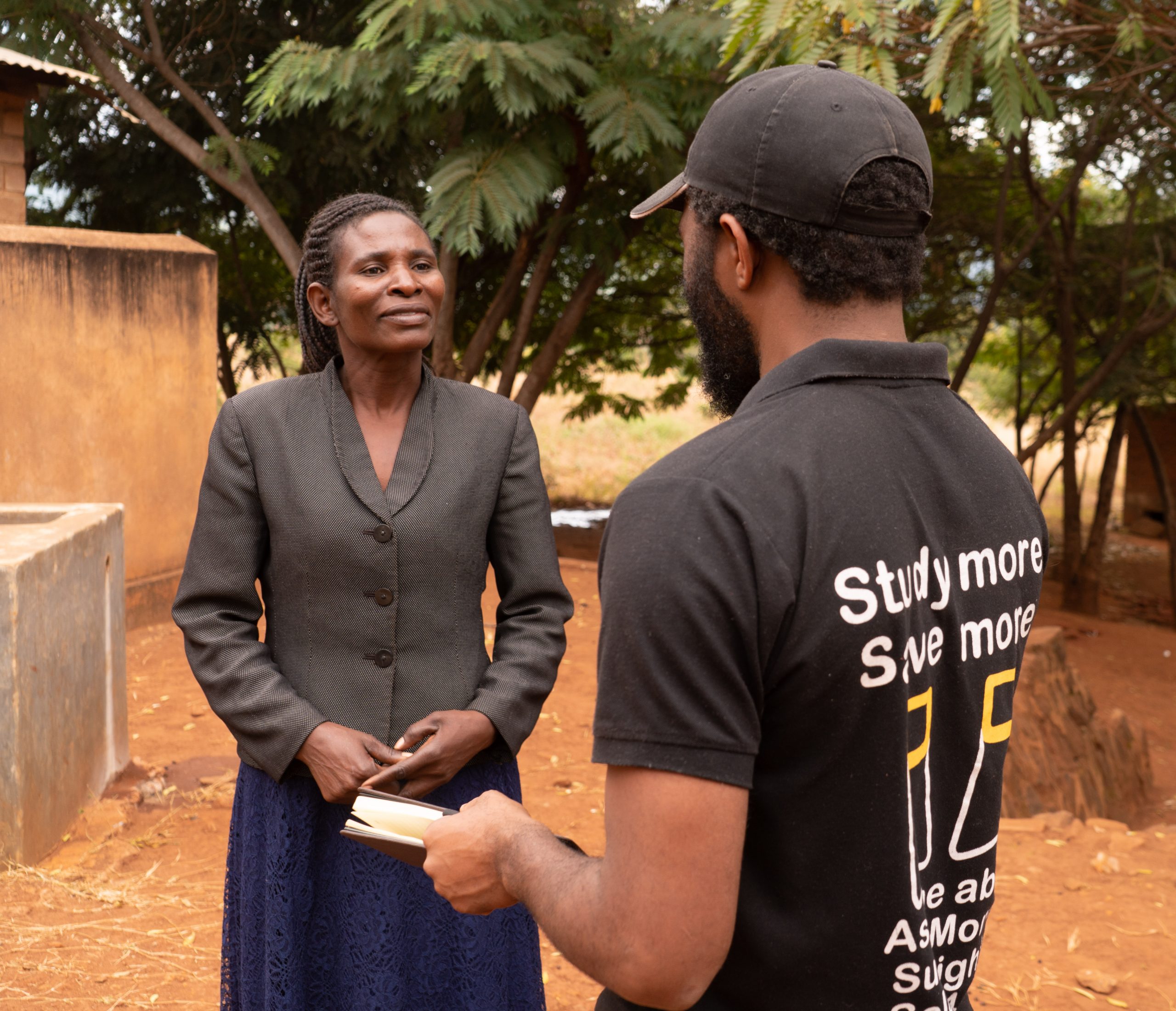
SunnyMoney General Manager Brave Mhonie talks to Agnes Kalima, Primary Education Advisor at Chikoho 2 School, Ntchisi. Photo: SolarAid/Chris Gagnon
Agnes Kalima works as a Primary Education Advisor in Ntchisi, she says, “If there isn’t solar panels installed [in the community], the students will face so many challenges. Using candles can be very challenging for kids. They can forget to put it off, as a result, they can be burnt while they are sleeping.”
Accidents caused by the use of open flames are not uncommon in the village. Bisayi Kaunda, a farmer who lives with his wife Aness Tembo and their two children explains, “Many people in the area use firelight in their houses, hence there have been many incidents of house fires.”
Bisayi knows what he is talking about. He and his family experienced a terrible accident in 2020 when one of Bisayi’s children was using straw fire to search for ingredients while cooking porridge. The fire came in contact with the grass thatched roof, and the family’s whole house burned to the ground. After that, the family decided to invest in a small torch, however, Bisayi says, “The current torch is too small, and not effective. Besides, using the torch is very costly because it requires buying three battery cells every four days.”
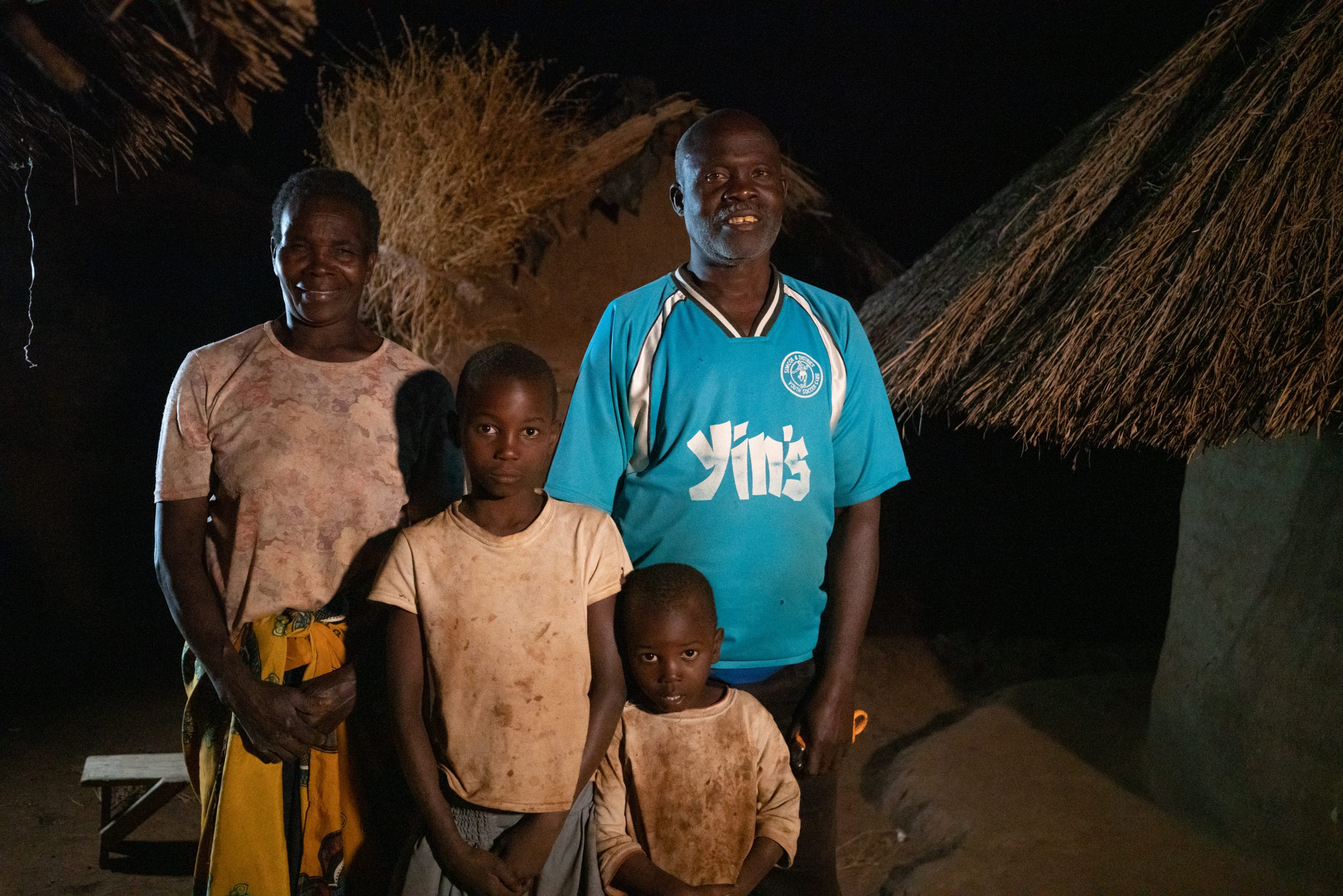
Bisayi Kaunda together with his wife Aness Tembo and their two children, Nawonmi (5) and Halord (3). Photo: SolarAid/Chris Gagnon
Our project, ‘Light a Village’ aims to ensure that families will be able to cook, work, study, and socialise by safe, affordable, and clean light. Solar home systems are being installed on all households in the village, giving the households the option to use solar through a Pay As You Go payment scheme. This will reduce the upfront investment that households must commit to in order to access solar power.
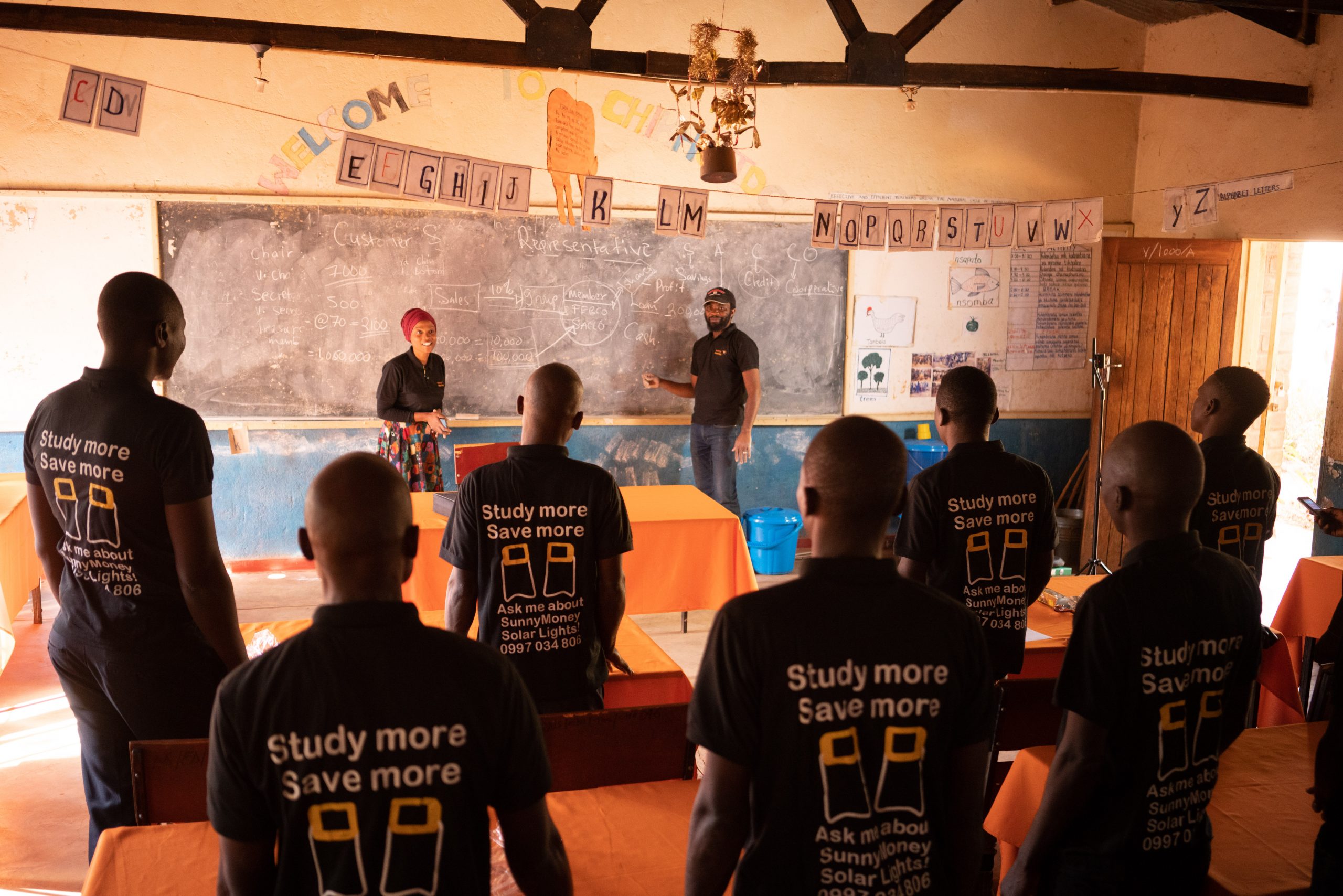
Dalitso Kudala and Brave Mhonie, SunnyMoney Malawi, training the new group of CSRs in Ntchisi. Photo: SolarAid/Chris Gagnon
During our preparations for the launch, we trained a group of Customer Sales Representatives (CSR) in the village to work with customers, install solar equipment and manage payment and customer relations. Ethel Bottoman, a 22 year old smallholder farmer took part in the training. She explained that the project will help improve many people’s lives in the village, “Many people are happy with the program because they want to live in light homes at night just like in towns.”
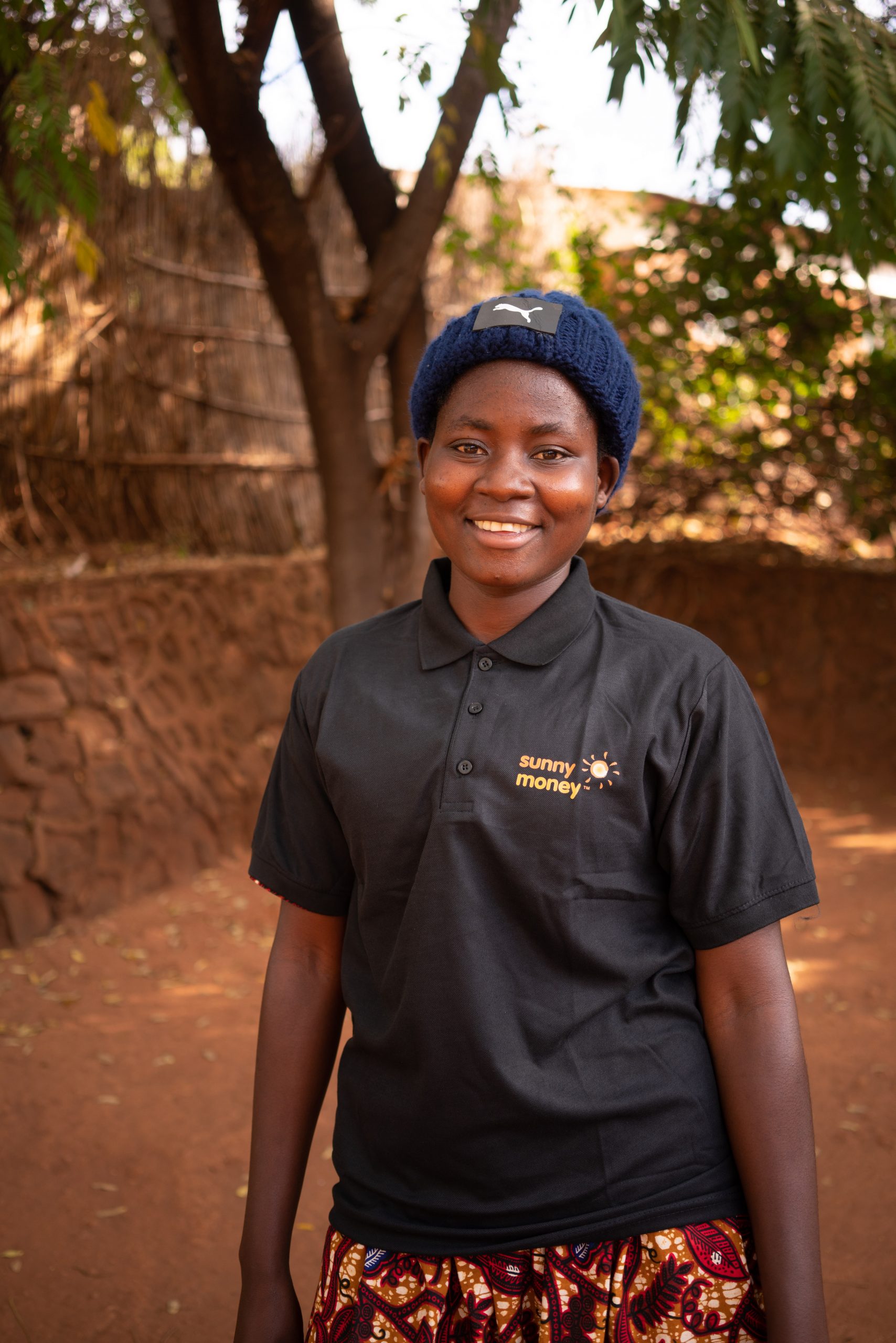
Ethel Bottman, 22 is starting her job as the CSR for Sunny Money in Ntchisi. Photo: SolarAid/Chris Gagnon
We are looking forward to sharing more updates, impacts and learnings from this programme as we go. Tonight, another family in Ntchisi will be able to flick a switch and have a safe light at night.
Together, we can light up every home, school and clinic in Africa by 2030. Get more updates on Light a Village and other innovative projects we are working on. Sign up to our newsletter.
